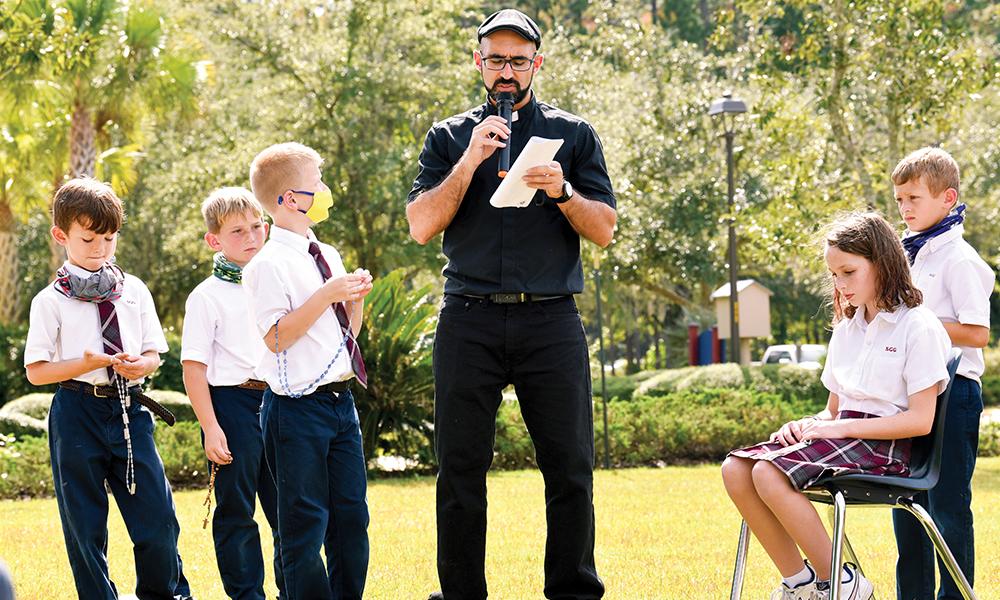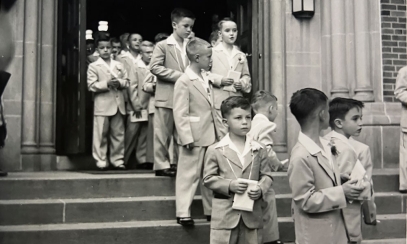
Teaching and Preaching
But Are the Recipients Learning?
But Are the Recipients Learning?
Ken Bain wrote a book entitled What the Best College Teachers Do (2004), where he identified a fairly large, but select, group of distinguished professors across various disciplines at colleges around the country. Then he actually went to their campuses and classrooms, labs and studios, and rigorously observed and studied what it was that they did that made them great teachers.
Ken Bain wrote a book entitled What the Best College Teachers Do (2004), where he identified a fairly large, but select, group of distinguished professors across various disciplines at colleges around the country. Then he actually went to their campuses and classrooms, labs and studios, and rigorously observed and studied what it was that they did that made them great teachers.
Teaching
The main thing Bain’s research suggested was that the best teachers didn’t actually worry so much about their “teaching” (i.e., the beautiful syllabi, the great slides, the eloquent lectures and the comprehensive semester exams), but rather focused on students’ learning, understanding right there while interacting with them, not on tests weeks later. Great teachers operated in various ways, but one way or another, all engaged their students, kept their attention, made them experience the content and continually monitored minute by minute to make sure students were learning.
Preaching
Curiously, Karla Bellinger, D.Min., in her 2014 book Connecting Pulpit and Pew, suggested something for preaching that was similar to Bain’s findings on teaching. Bellinger asked church attendees, “How did you encounter God in the homily you just heard?”
She didn’t ask, “How did you like what the preacher said?” “Do you think it was well organized, how about the examples, etc.” Rather, she asked about the outcome, the impact, the behavior change of the listener going forward, regardless of whatever the preacher did, or thought he or she did.
Changing the system
In 1971, during my fourth year of graduate school in psychology, I took a very impulsive and disruptive “sabbatical” with the intent of stepping back (or out) in order to analyze and come up with a comprehensive prescription for changing the entire educational system. Pretty heady stuff for a 25 year old who was still struggling to get through graduate school.
The funny thing is that some 45 years later, I read in the local newspaper about a high school senior who was going to Princeton on a quarter-million dollar scholarship with the goal of reforming the entire educational system. Her ambition prompted me to get out my old 51-page manifesto on the topic and see what I had said. My basic premise was that everybody wants happiness in life. Everything we do, even the altruistic and self-sacrificing things, are ultimately geared toward personal, internal happiness.
Therefore, it seemed to follow that the way we educate, from objectives to method to content, should be consistent with the overall goal of each student achieving happiness, now and in the future.
This doesn’t mean that there wouldn’t be difficult tasks to be tackled by students. It is just a question of do we have to make students miserable while they are taking on these difficult tasks? Is there something we can do to make education a happier enterprise?
Back to the present
Thinking about it today, we teachers might ask ourselves, “Are my students happier from having interacted with me?” If so, then they might be more likely to go on to study more of my subject, seek out more education, in general, and be more excited about education and life. Much of the content will soon be forgotten, but the teacher, and the spirit in which the teacher taught, will likely be remembered forever.
Back to preaching, I am reminded of Vladimir Lenin’s comment about Christianity: “If you Christians want me to believe in your God, then you better start looking more saved.” Do preachers look and sound saved when they are preaching? Does that saved mentality and demeanor transfer to the congregation? Does the congregation leave church that day thinking, feeling and acting more saved?
What to do?
Be it a teacher or a preacher, it is hard for many to change, particularly if they have been at it for a long time. Remember Dennis (the Menace) and Joey, lost in the forest, running around in circles together? Dennis finally says, “Don’t worry, Joey. We may be lost, but we’re making good time.”
There are many wonderful teachers, past and present. For those of us who struggled or continue to struggle in teaching, maybe some of the following can help:
- Abandon your notes once in a while. Deviate from your beautiful syllabus. Take your eyes off your slides and look at your students to see if they are truly learning, or if those eyes just glazed over.
- Ask questions about what you just taught to see if it registered. Ask students more questions to see if they can use what registered, extrapolate to different situations and give examples of what they learned.
- Lastly, are they inspired and excited, wanting more upon leaving your class? Do they maybe even look a little happy? Or, on the other hand, are echoes of Lenin saying, “If you want me to believe that you are a great teacher, then your students better start looking happier when they leave your class”?
Thomas Dorsel, Ph.D., is professor emeritus of psychology at Francis Marion University, currently living on Hilton Head Island with his wife, Sue. He can be found on dorsel.com or cantoring at Holy Family Church.



